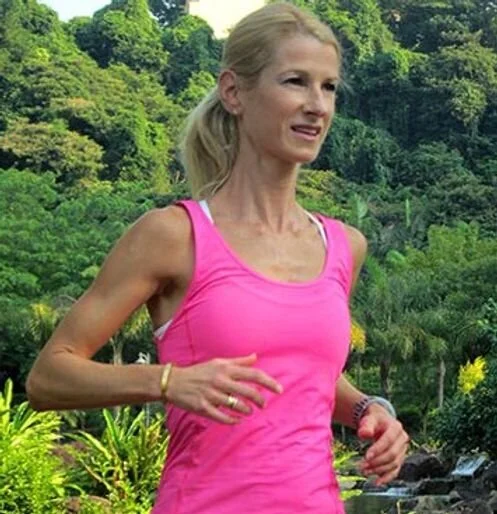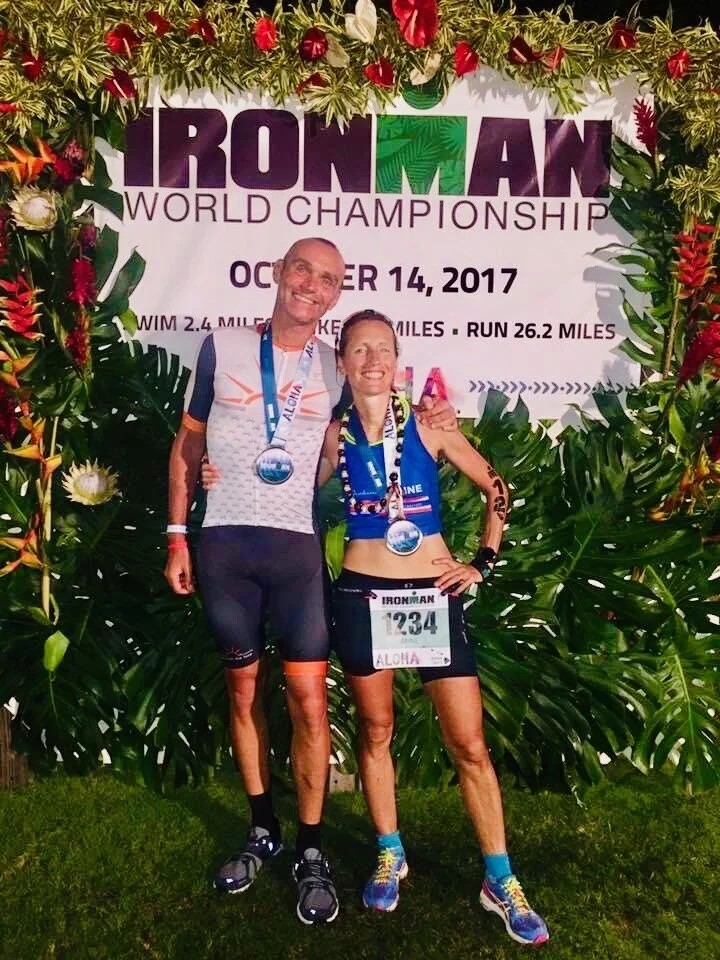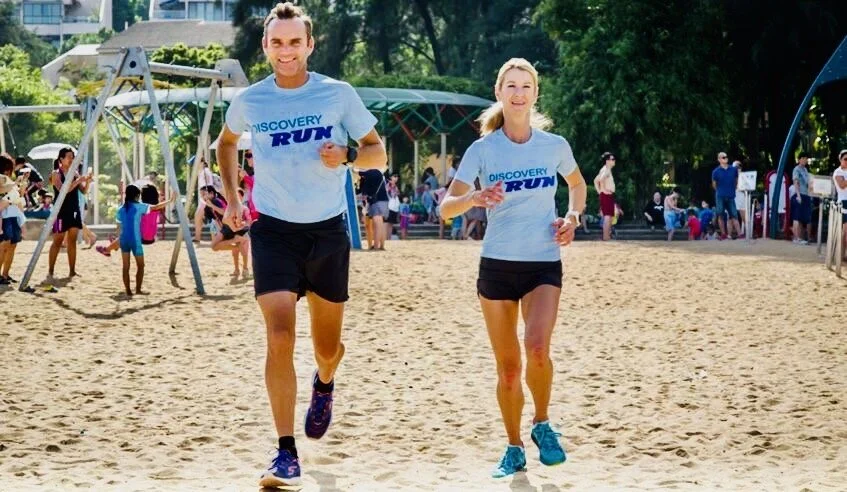BEAT THE HEAT ! Tips From ultra runners, Olivier Baillet and Katia Kucher
Maintaining your form while keeping your cool can seem impossible in a hot and humid environment. Get best advises from three experts on what you can do to stay healthy in the heat.
SWEAT SMART
Owner of personal training & fitness @ d.BeFit, Canadian pro-athlete and brand ambassador @ ALKA12™’, Katia Kucher knows all too well that training in the heat can often feel like a major challenge. “Heat is a runner’s enemy. No matter how much we hydrate, our body is affected by the constant hot weather; our performance decreases and our stamina levels go down,” she says. However, Katia explains that there are also surprising benefits to lacing up those trainers – even when it’s 30ºC outside. “Training in the heat properly can have extraordinary effects. Heat training can increase the rate of perspiration, increase a runner’s blood plasma volume (which leads to better cardiovascular fitness), reduce overall core temperature, reduce blood lactate and even increase skeletal muscle force.”While she believes that athletes can benefit from hot-weather training, Katia stresses that workouts must be carefully planned. “When training in hot weather – and especially high humidity – our body quickly gets depleted of basic minerals and electrolytes like sodium, potassium, magnesium and calcium.” She recommends including electrolytes in drinking water and drinking a minimum of 200 to 350 ml of liquid every 10 to 20 minutes. She also recommends caution with sunscreen, explaining, “Some creams clog pores, preventing the skin’s natural ability to sweat and cool, so it’s also important to test the type of sunscreen you use. Get more advises on from Katia’s blog at d.Befit
HOT WEATHER WORK-OUTS
Owner of Beyond the Line endurance coaching and consulting, Olivier Baillet recommends approaching hot-weather workouts with pragmatism: “The people I coach are very performance-oriented and driven, but in the heat, they all slow down. Recovery takes longer as the body has to work more to adapt to the hot conditions. Something important to remember is that what makes exercise so hard in summer is not really the temperature, but the humidity. Running in 30ºC and 80% humidity would smash most of us. Running at the hottest time of the day is, in general, counterproductive- the stress on the body created by that kind of effort is too high”. Olivier also highlights the importance of preparation to get the most out of your workout: “If you run, make sure you leave water at some places. Wear light clothes but remember that naked skin may not be the best option; some garments do keep you cooler than bare skin and protect you from the sun. Wear a hat and sunglasses. And be prepared to cut the workout short if you start to feel dizzy or if discomfort becomes too hard to cope with. Olivier Baillet is well-known in the sports community for having completed the Ironman world championship 4 times, for swimming around Lantau Island in Hong Kong - a unique feat, 80km of swimming- for climbing the equivalent of Mt Everest altitude on a bike and recently for introducing the Swedish Swimrun.
Finally, both athletes are huge fan of ALKA12™ magnesium gels and oils. Magnesium is intimately involved in efficient muscle function. The mechanisms include oxygen uptake, electrolyte balance and energy production. Magnesim relaxes muscles and balances calcium, which contracts muscles, working together to make muscles work properly. “ATP, the main source of energy in cells, must be bound to a magnesium ion in order to be biologically active. ”Athletes take note: Magnesium is lost in sweat but not replenished by the normal electrolyte replacement drinks. Ensuring your magnesium levels stay sufficient will ultimately help eliminate muscle cramps, lactic-acid buildup, and aches and pains.
For a great colling effect, put your ALKA12™ bottles in the fridge. When apply to the skin, the magnesiums ions would hydrate and feed your muscles instantly with oxygen and energy. And such would re-mineralized your body and replenish your magnesium at cellular level. You may apply an hour prior the run to maintain suffissant energy, or right after for a speed recovery.
Olivier and Katia recommend as well the use of ice to maintain a comfortable temperature during workouts. Katia says: “An easy way is to use a buff, fill it with ice and put it around the neck. The blood circulating through that artery is eventually transported to the heart and the entire body. Another area with a major artery near the skin’s surface is the wrist, so wearing a cooling wristband around the wrist will have a similar effect. Olivier add:” In races, if ice is available, I make sure I keep it in my cap, in my hands and over my kidneys.
But these tricks are only when I want to be able to push really hard into the heat for a long time, which is not something I do every day. If the heat is simply too much to face, it’s better to find an alternative that works for you. During the summer months, I often train indoors. I run at the gym, bike at home on the turbo trainer, and avoid the outdoor pools altogether. So, with just a little careful planning, there’s no reason to let your fitness slide as you wait for temperatures to drop.
COOL FUEL
Keep hydrated, of course, but avoid sparkling water and soft drinks. They may feel cold but do in fact heat the body,” opens Dr Shveta Chhoker, Ayurvedic consultant at Shakti Healing Circle. Ayurveda is an ancient holistic practice that focuses on the balance between body, mind and spirit to achieve optimal wellness, and Dr Shveta explains that maintaining a comfortable temperature starts with what we consume. Dr Shveta suggests coconut water as an excellent alternative to fizzy drinks, as it not only works to hydrate, but also replaces minerals lost through sweat. Another simple swap? “A squeezed lemon in water with some mint is also ideal. The lemon delivers vitamin C and keeps us nourished, while the mint is cooling and leaves us replenished for longer. Dr Shveta also advises caution when it comes to tempting summer barbecues. “Avoid or cut down on meat such as beef and lamb, as they heat the body.” Instead, she recommends filling your plate with healthier sides. “Eat more water-based leafy vegetables such as lettuce, and more fruit and vegetables in general during the hot summer months.” And for those who crave a sweet treat? “Watermelon is ideal in the summer heat, either taken as it comes, or in a smoothie.





